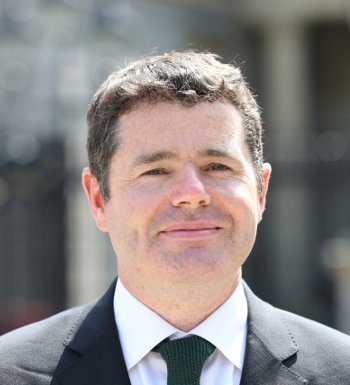THE perception of Ireland as an expensive holiday destination is unfair, according to the newly-appointed Irish Minister for Transport, Tourism and Sport.
Paschal Donohoe, a TD for Dublin Central, said: “A lot of research over the last years shows that our value for money has really improved.”
But speaking during a whistle-stop trip to London, the minister accepted that between 2003 and 2008 the country lost its competitive edge.
“Some of our goods and services were not attractively priced. That’s an issue that everybody recognised and it’s been fixed,” he added.
A new global promotional campaign by Tourism Ireland, costing £9.5million, will attempt to draw in more visitors during the “late-season”, September to December.
Mr Donohoe said: “You’ll see our campaign particularly focus on city breaks and festivals, like the Bram Stoker Festival in Dublin.”
In recent years an increase in short breaks have led to more stag and hen groups travelling to Ireland’s larger cities.
While a ‘rowdy’ tag can sometimes be associated with such visitors, the minister said: “Any form of tourist is welcome to Ireland. I would look at what some of our different towns and cities have done to make that part of what they do. If you look at all the different cities and towns tourists go to, they’re very well policed.
 Paschal Donohoe
Paschal Donohoe"And look, the overwhelming majority of people who participate in stag parties who go to Ireland, or indeed to any other place, are there to have a good time and operate well inside what’s acceptable behaviour.”
A drive will also be undertaken to encourage more visits to rural Ireland.
“One thing that’s working particularly well is the concept of the Wild Atlantic Way,” said Mr Donohoe adding that some of Ireland’s attractions were “older than the pyramids”.
The new British-Irish visa scheme is also expected to encourage visitors from India, China and the Gulf states by making travel between the two nations easier.
So is the 11 per cent surge (178,000) in visitor numbers in the first seven months of 2014 mostly squared at the significant recovery of the British market.
“While you’re correct that the growing UK economy creates the circumstances in which demand can take place, we also have to seal the deal,” the minister said. “Across 2013 and 2014 the Irish share of UK tourism has grown as a result of the efforts of Tourism Ireland and tourism businesses back home and measures the Government have put in place.”
Last year’s Gathering campaign – the tourism kick which reunited the Diaspora in Ireland – was a resounding success. Figures showed North American visitors went up 20 per cent while in Britain it went up by three.
“The big thing that made a difference was the increase in air access capacity of a quarter between Ireland and North America,” the minsiter said. “If a British resident wants to go to Ireland it’s relatively straightforward. Although we suspect that if you’re somebody with an interest in Irish heritage or Irish background, but living in America, what we needed to do was give them a bigger nudge to make that decision.
He added: “And because we did that through the Gathering, access went up across that period, it probably led to a disproportionate band within that market.”
Mr Donohoe described himself as “well-travelled” through Britain, with “fantastic memories” of his five years living and working in London as well as a year spent in Newcastle.
Asked how he would measure his successes in the coming years, the minister said it would be whether he could take steps towards making tourism worth five billion euro to Ireland by 2025.
“I think the short-term measure that I’ll be judged by within tourism is success in winning market share in important markets,” he said.

